Brouwerij Eylenbosch, which had been one of Belgium’s best known lambic breweries until it no longer brewed around 1989, has been reborn. This famous old landmark is on the road from Brussels to Ninove, in Schepdaal.
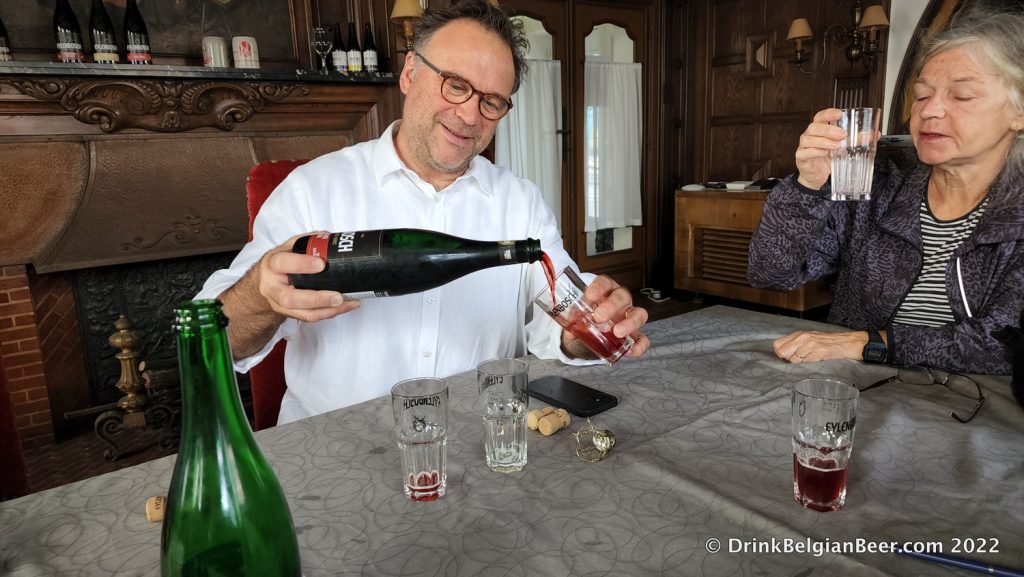
In 2018, Erik De Keersmaeker, the fifth-generation of the De Keersmaeker lambic brewing family, which includes De Keersmaeker and Mort Subite, started a crowdfunding project in order to secure the necessary funds to restart the proud Eylenbosch lambic making tradition, although at another location. Erik did this with partner Jeroen Lettens and brewer Klaas Vanderpoorten.
Note: Brouwerij Eylenbosch should not be confused with Het Boerenerf Eylenbosch which I wrote about in this previous article here. There were two old Eylenbosch lambic breweries in Belgium, and the new Boerenerf blendery is in Huizingen, where the other old Eylenbosch brewery is. Eylenbosch (Huizingen) stopped brewing in 1965. The families are distant relations, so these are two completely different lambic producers.

The original, still imposing Brouwerij Eylenbosch buildings in Schepdaal, on Ninoofsesteenweg, have been largely converted into 55 apartments, and some retail space. Those must be really cool apartments! So, Erik’s plan was to open a lambic blendery at another location at first, and so they did, beginning in 2019.
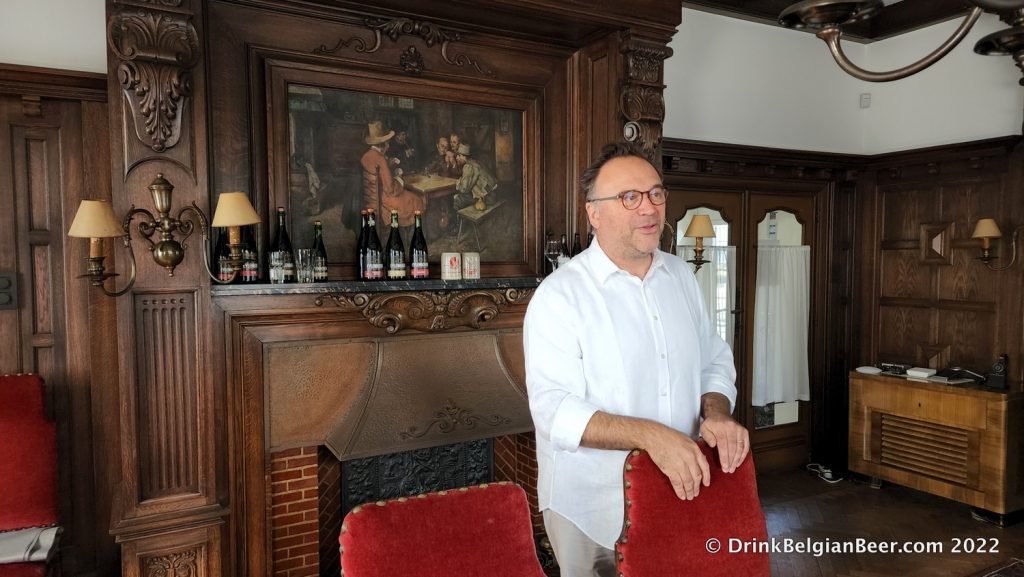
The offices of the “new” Brouwerij Eylenbosch are actually located off the same courtyard as Brouwerij Mort Subite in Kobbegem. I met with Erik, as well as Lieve Veyt, who is Finance and Administration Manager, and Geert Demuynck of Publitasting, who hosts tastings of Eylenbosch beers, as well as tastings of his own lambic brews.

The setting was a beautiful old dining room filled with antique furniture, within view of the ‘t Wit Paard (White Horse) cafe on Kobbegem’s small square, on a warm August day in 2022. We tasted batch one and two of the Eylenbosch Oude Geuze and Oude Kriek, which were very good, with both batch two’s being a bit more complex and evolved than the initial versions. We also sampled a delicious Schaarbeekse Kriek.
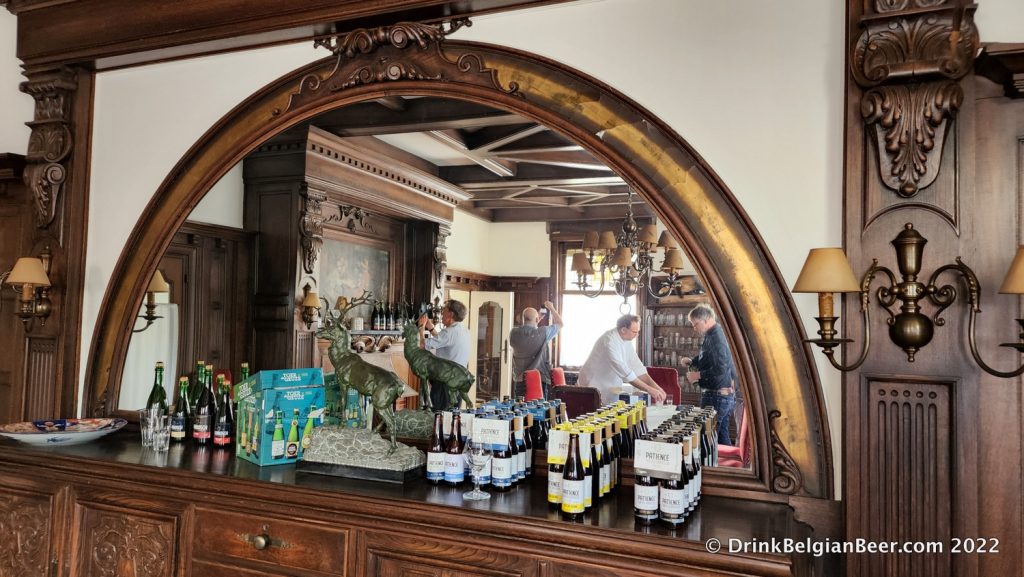
Our small group included lambic guide Patrick Van der Spiegel of “The Land of Geuze” and “Lambic Beer Tours” as well as lambic fan Dave Atkins of the U.K.
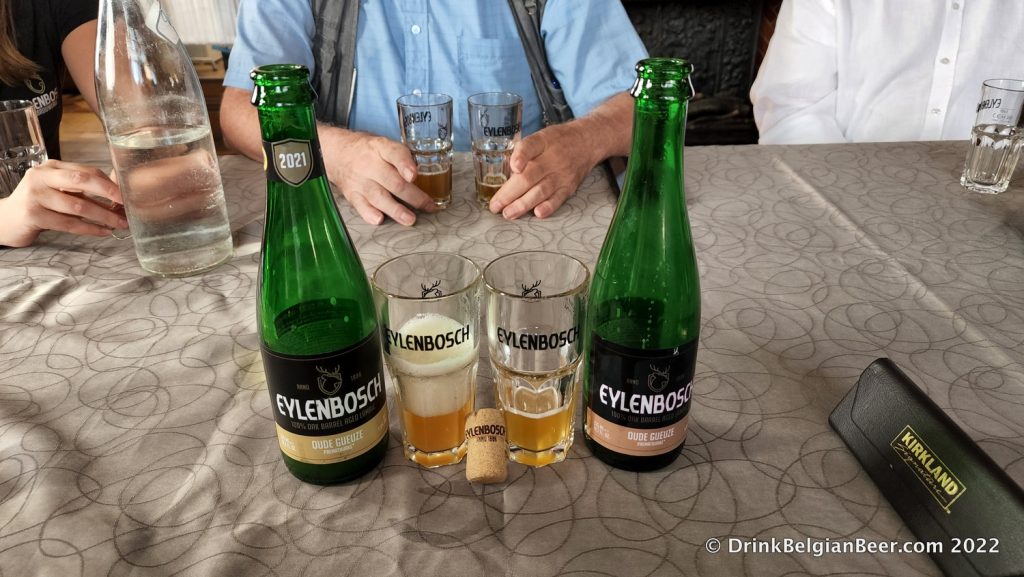

After a very pleasant tasting and a look at Erik’s collection of old glassware, we headed off to the new blendery site in Zellik. It is located about 2 km to the southeast of Kobbegem, on an old 18th century farm called “Hof van Piemont” where one of Erik’s relatives, Jan Vanderhasselt, grows apples and pears.
Eylenbosch has been brewing at the venerable and historic Brouwerij De Troch in Wambeek for several years now. The wort is transported to the blendery in Zellik the morning after a brew day and pumped into their barrels, after the wort has cooled. So, it is the same process as with most of the other lambic producers. The wort from Brouwerij De Troch is of such a high quality, in fact, that it is used in many of the Bokke lambic brews, and also in many of the Brouwerij 3 Fonteinen lambics. De Troch’s wort is also used in some of the Bofkont and H. Ertie lambics, and by other lambic producers as well.
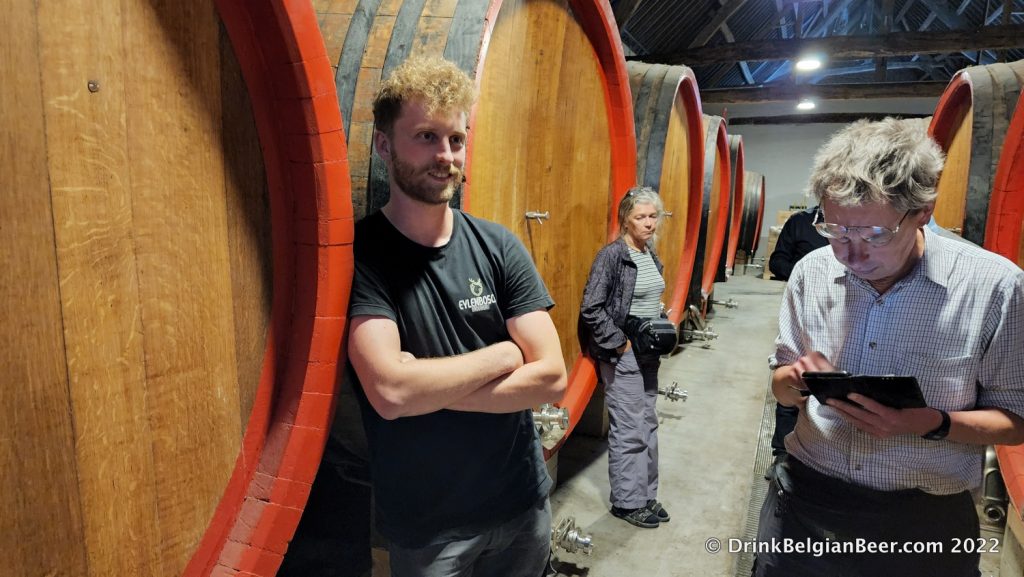
“We made an agreement with Pauwel Raes from Brouwerij De Troch that Eylenbosch brews our own wort in the De Troch brew installations, and the brewer is Klaas Vanderpoorten, Eylenbosch’s bio-engineer,” Erik says.
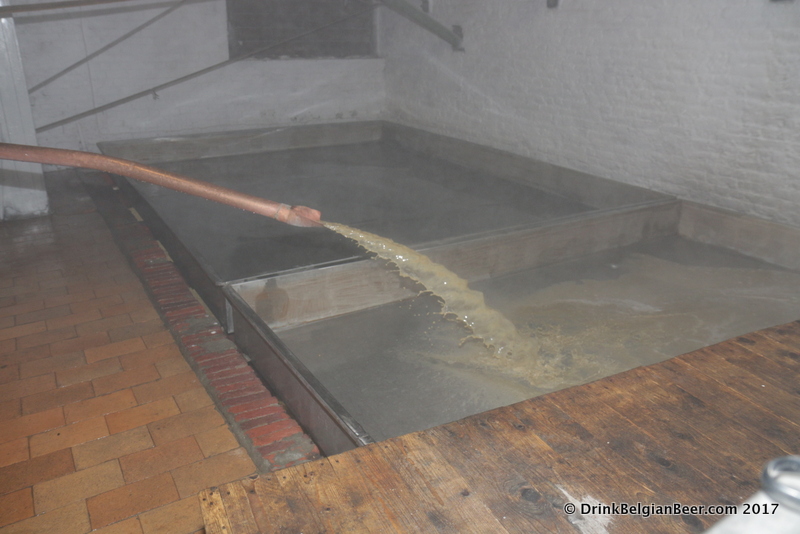
Below is another longer video of the Brouwerij De Troch coolship in action, and of the snowy scene outside of the brewhouse.
I spent the better part of a lambic brew day at Brouwerij De Troch in November 2017 on a cold, snowy day. It was an adventure, and a great day for lambic brewing, that was spent with brewer/owner Pauwel Raes and lambic beer guide Patrick Van der Spiegel.

About someday adding their own new brewery, Erik De Keersmaeker remarked that they hope that can happen in a few years.
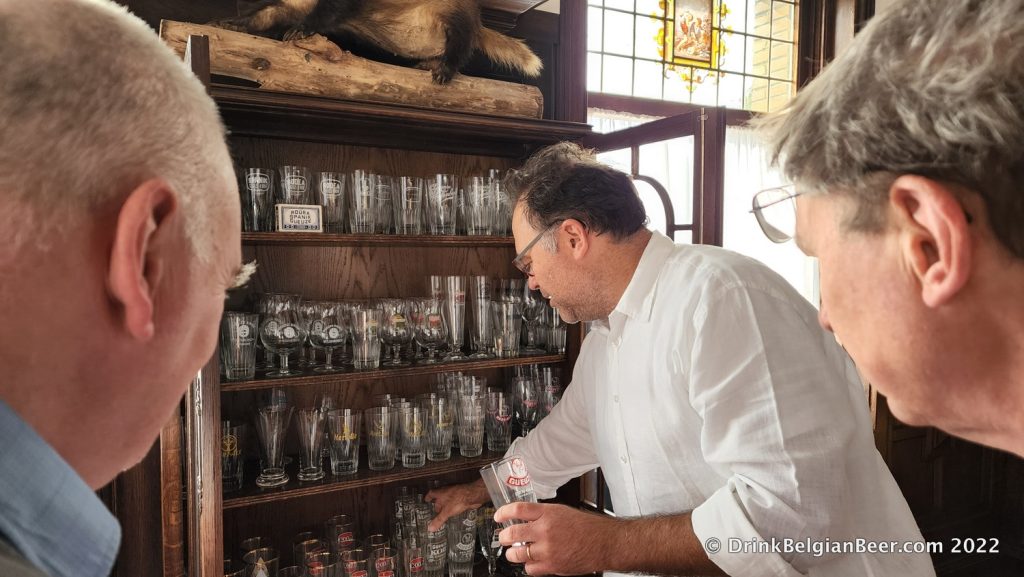

At the Eylenbosch lambic blendery in Zellik, we first took a tour of an old barn that has been converted to a lambic maturation space. It was a warm, sunny, beautiful late summer day, so we walked outside to a space abutting an area where farm machinery is stored, next to the fruit fields. First, we took a little tour outside, on the edges of the apple and pear fields, where some of the beautiful old foeders from Brouwerij Mort Subite, formerly called Brouwerij De Keersmaeker, have found a permanent resting place. These carved foeders have the date 1889 on them.



As we had tasted most of the lambic brews already, Erik and Geert suggested we taste the “Patience for Eylenbosch” line of beers, which were created to raise funds to help bring the Eylenbosch lambic tradition back to life.
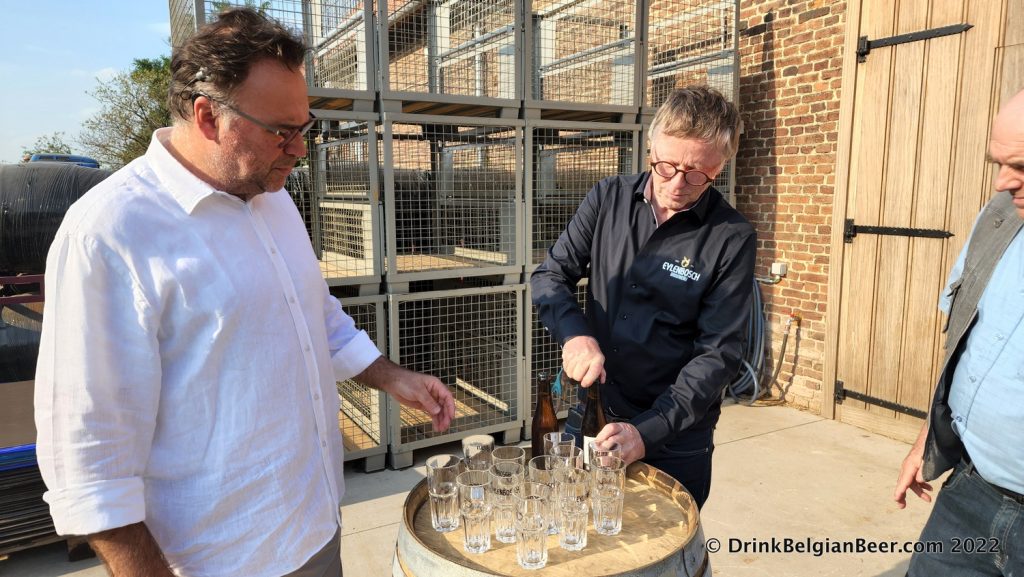
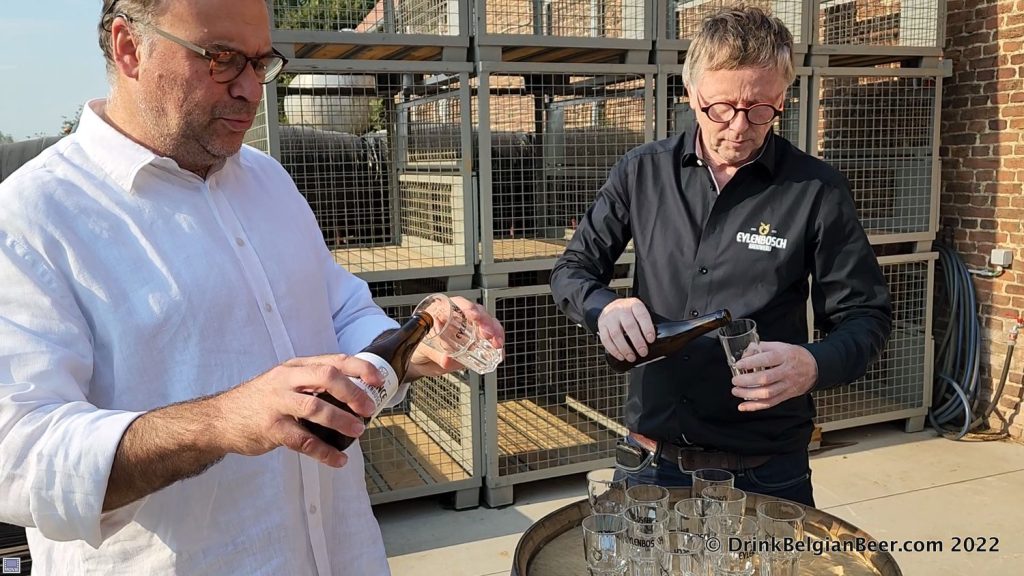
The “Patience for Eylenbosch” beers are brewed at the superb Brouwerij/Brasserie de Ranke, like with De Troch brewery, by Klaas Vanderpoorten himself. De Ranke is located in Dottignies, in Hainaut Province, Wallonia. De Ranke is one of Belgium’s premier breweries, making it also one of the best breweries on the planet.


We first tasted “Hoppy Saison” and it was as advertised, a great hoppy saison, with just 5.5 abv, but a lot of flavor. Very thirst quenching.
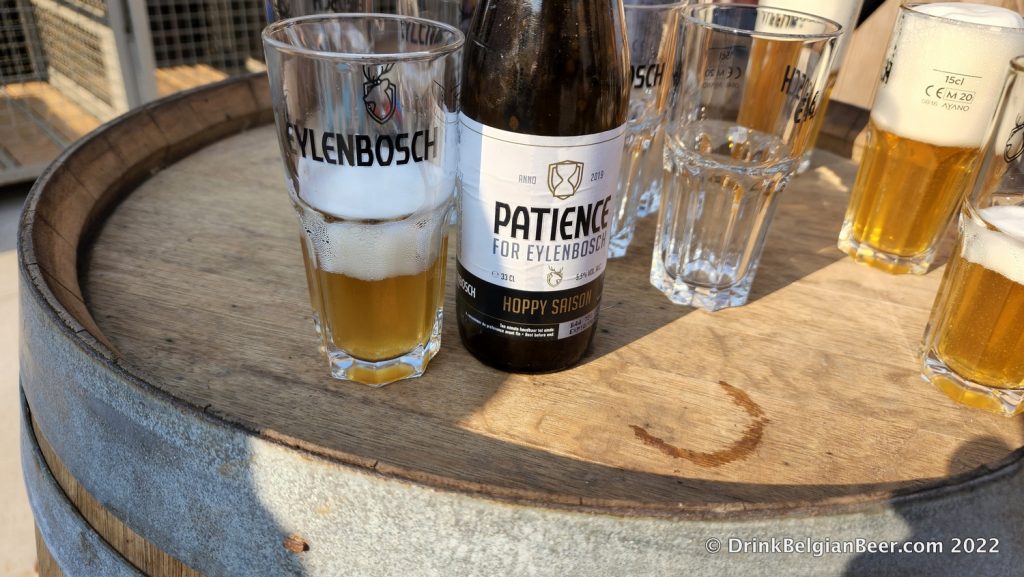
Next up was Pale Ale Speciale, a version of the Belgian Special Pale Ale. Some of the other beers in this style are Palm and Spécial De Ryck from Brouwerij De Ryck. This is an interesting and flavorful copper colored ale.
We then moved on to Special Blond, an easy drinking ale with 6.5% abv.
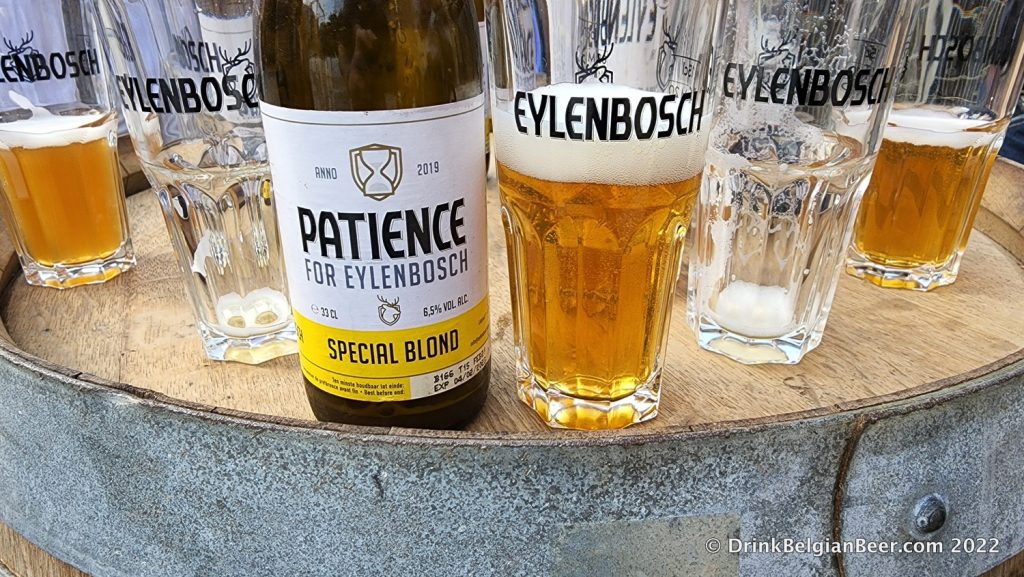

The last beer we tasted was an appropriate one: an 18 month old lambic, right from a barrel. It was delicious, with medium carbonation, medium funkiness, and a mild refreshing tartness. In short, an excellent lambic.
On Thursday, January 12th, Brouwerij Eylenbosch was admitted to HORAL, which is The High Council for Artisanal Lambic Beers. Being admitted to HORAL as a member is a great honor for any lambic producer.
The press release from HORAL stated:
“The Supreme Council for Craft Lambic Beers (HORAL) welcomed Eylenbosch as a new member last night. This includes the non-profit that unites the majority of the geuze blenders and lambic brewers, now numbering 12 producers. Since 2020, Eylenbosch, after Lambiek Fabriek and Den Herberg, is the third brewery that has joined HORAL. The Supreme Council has the main goal of the promotion of craft lambic beers, in particular Oude Geuze and Oude Kriek.
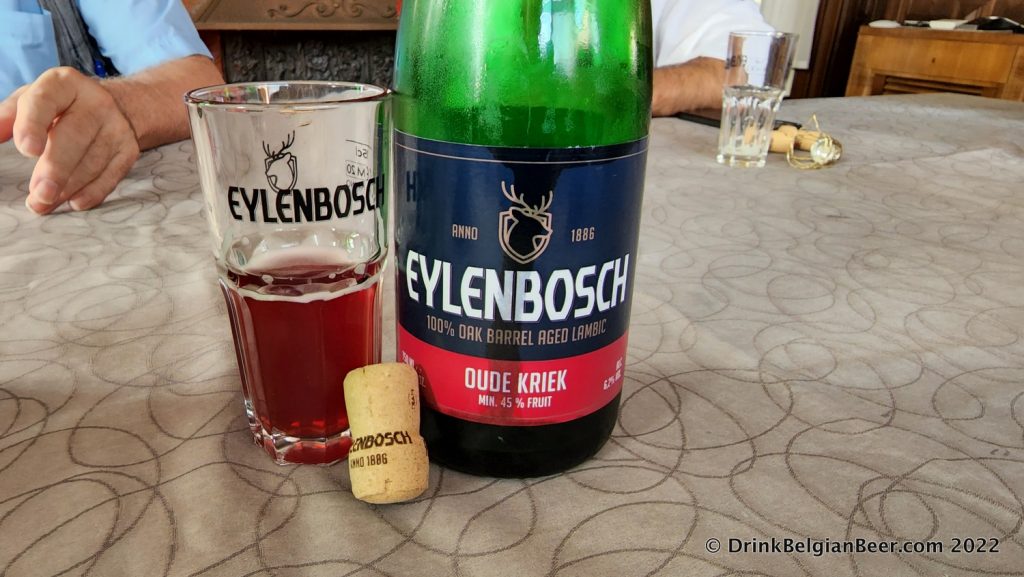
The association is also taking initiatives to protect these beers. Every two years the non-profit organizes the Tour de Geuze. The next edition of this famous open brewery weekend will take place on Saturday 4 and Sunday 5 May 2024. During last night’s meeting, Gert Christiaens of Oud Beersel was also re-elected as chairman for a new term of 4 years.
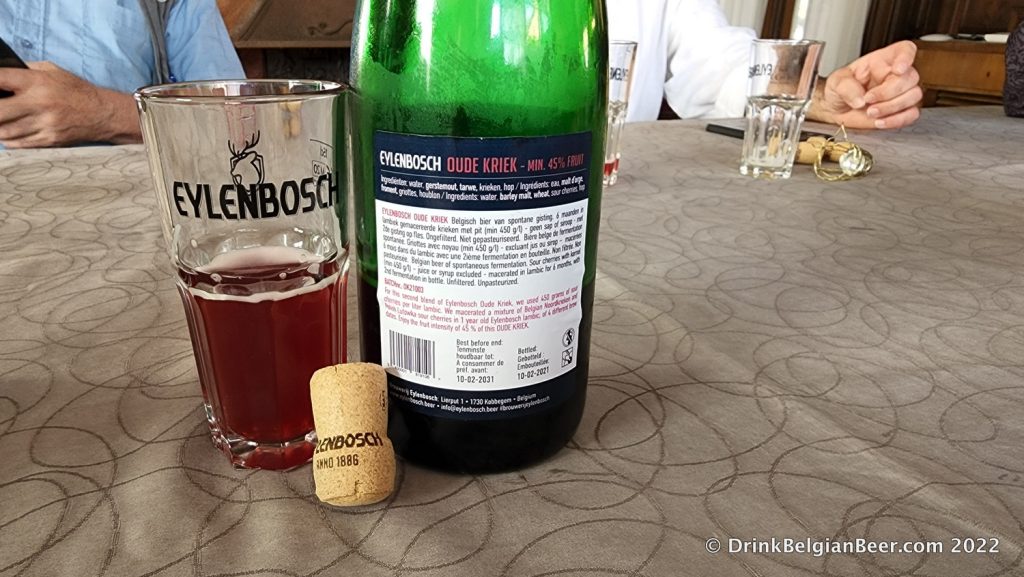
‘The general meeting unanimously approved Eylenbosch’s accession to our non-profit.’ Last year we welcomed Den Herberg brewery into our group, and two years before that, Lambiek Fabriek,’ said HORAL chairman Gert Christiaens. In other words, the rejuvenation of the sector continues. This is very encouraging for the future of traditional lambic beers. Especially because, year after year, we also find that on the consumer side Lambic, Oude Geuze and Oude Kriek continue to do very well with consumers in their twenties and thirties. The traditional lambic beers are appreciated by adults of all ages.’
.

The Eylenbosch brewery in Schepdaal was founded by Emile Eylenbosch in 1886. It soon grew into one of the most important lambic and geuze producers in the Pajottenland in the last century. The brewery knew its absolute highlight in the period around the 1958 World Exhibition. After that, the lambic beers lost more and more popularity due to the growing popularity of industrial beers. Eylenbosch also went through tough times, and stopped the production of geuze and other lambic beers in the early 90s.

The brewery was bought by the De Keersmaeker family of Mort Subite and later passed into the hands of Alken-Maes. In 2002, the brewery group decided to close the doors of Eylenbosch permanently. However, the building remained in the hands of the De Keersmaeker family.
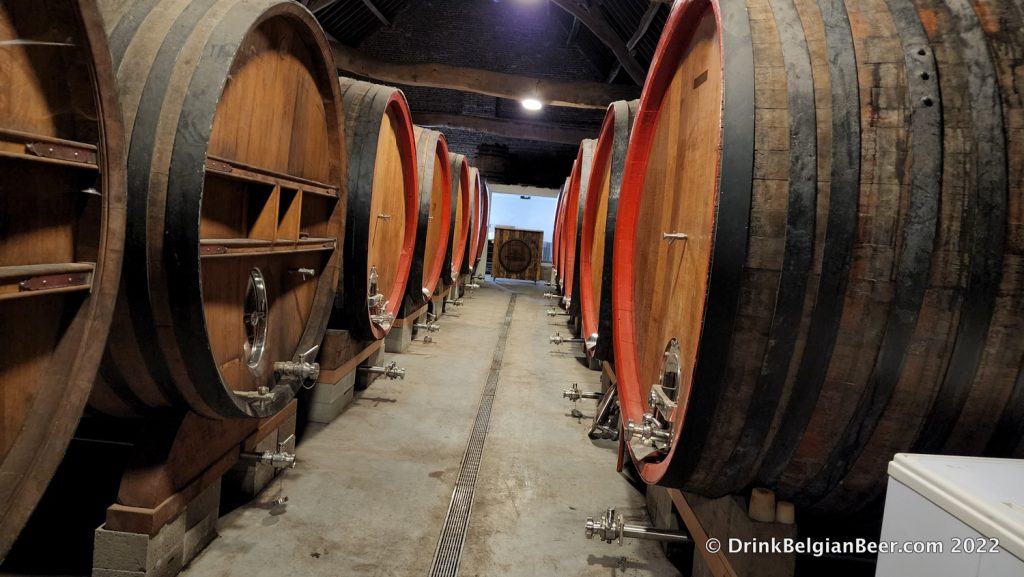
Urban architect and other licensing perils made sure that the Schepdaal brewery building remained empty for years. After almost 30 years of hibernation, Eylenbosch finally came back to life in 2019. The vacancy came to an end and Erik De Keersmaeker decided to join his family’s brewer tradition again. As a fifth generation, he brought back to life the beer brand Eylenbosch, together with brewing engineer Klaas Vanderpoorten and University student friend Jeroen Lettens.

The trio values tradition and authenticity. In addition to a number of top fermentation beers bearing the name “Patience for Eylenbosch”, Erik, Klaas and Jeroen mostly produce lambic beers according to the traditional method. At this moment Eylenbosch Old Lambiek, Old Geuze, Old Kriek and Old Schaerbeekse Kriek are already on the shelves.
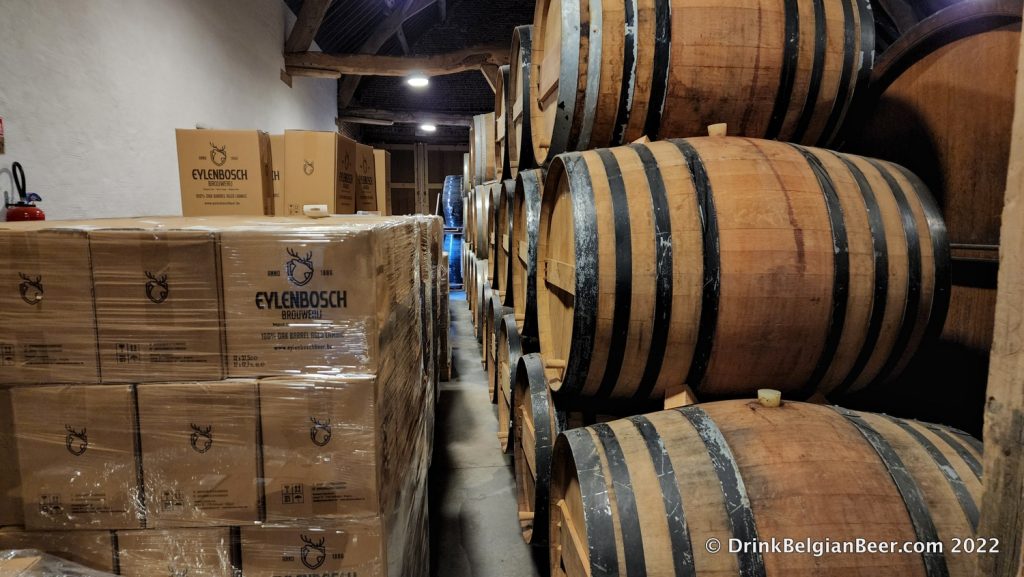
“The offices of Eylenbosch are located in the old brewery of the De Keersmaeker family in Kobbegem. Since 2019, Klaas has been making all lambics by hand in the De Troch brewing facility in Wambeek. The lambic is ripening in the square courtyard of Hof van Piemont in Zellik. Soon we will also store lambic in the iconic Eylenbosch building on the Ninoofsesteenweg in Schepdaal,” says Erik De Keersmaeker. “Our first bottles of Oude Geuze were introduced two years ago. The three-year-old lambiek that was incorporated into the blend of the Oude Geuze that is now on the market, still comes from a fellow lambiek brewer. The first Eylenbosch Oude Geuze that will contain 100% lambic from Eylenbosch, has been bottled end of 2022 and will be for sale in the spring/summer of this year, 2023.”
The total lambic stock of Eylenbosch is at the moment more than 1000 hectoliters. It is ripening in 280 oak barrels in the 225 liter size, 110 in the 500 liter size, and 21 foeders of 4000 to 5000 liters each.
(End of Press release from HORAL.)

About being granted entry into HORAL, Erik De Keersmaeker told me recently: “We are very proud that Eylenbosch can join the Lambic council of HORAL, a recognition of our product quality and respect for tradition.”
Erik added: “We will have an additional 300 square meters of cellar space for lambic maturation, in oak barrels and foeders, in the cellars in the old Brouwerij Eylenbosch buildings in Schepdaal. We hope to have this site in use by summer 2023.”
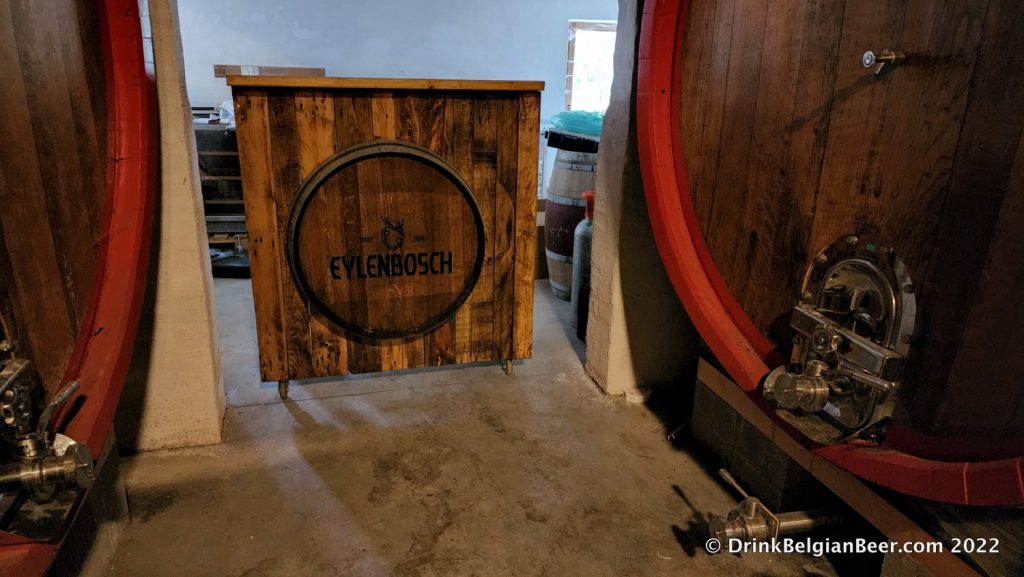
He continued: “We want to set up the site in the old Eylenbosch cellars as a multifunctional one, so it can be used for visits and tastings, but also for work, and maturing more Eylenbosch brews.”
I look forward to visiting the new space once it is completed, and so should any lambic lovers out there! Eylenbosch is producing some very, very good lambics, ones you should seek out.
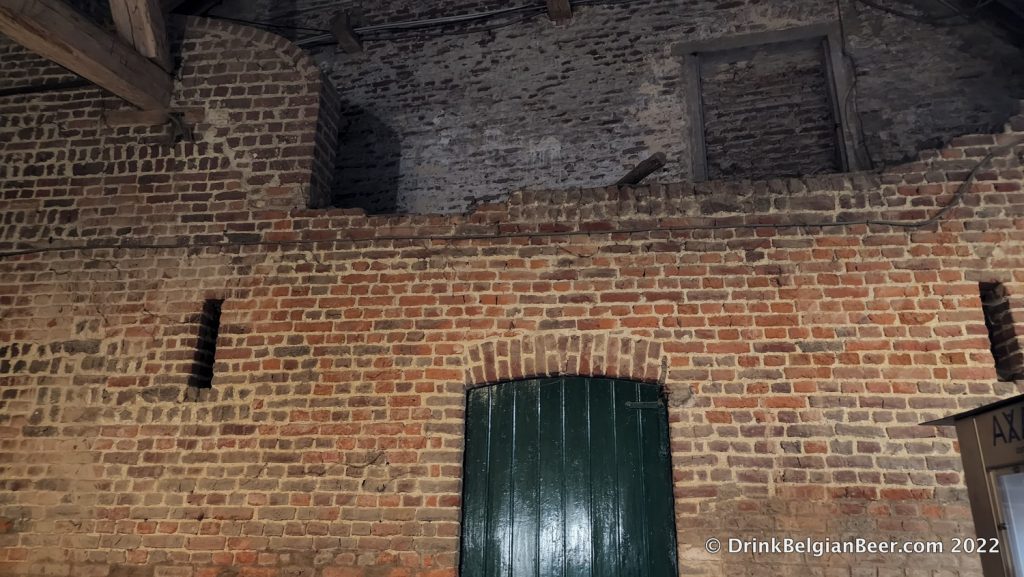
As far as how to get around Belgium’s lambic country, to places hard to reach by public transport, I recommend considering a professional lambic guide.
One such person is Patrick Van der Spiegel. As a resident of Halle, ten miles southwest of Brussels in Belgium’s lambic country, he has lived his life savoring and enjoying lambic brews. Patrick has two projects, “The Land of Geuze” and “Lambic Tours” which both have Facebook and Instagram pages. The Lambic Tours website is here.
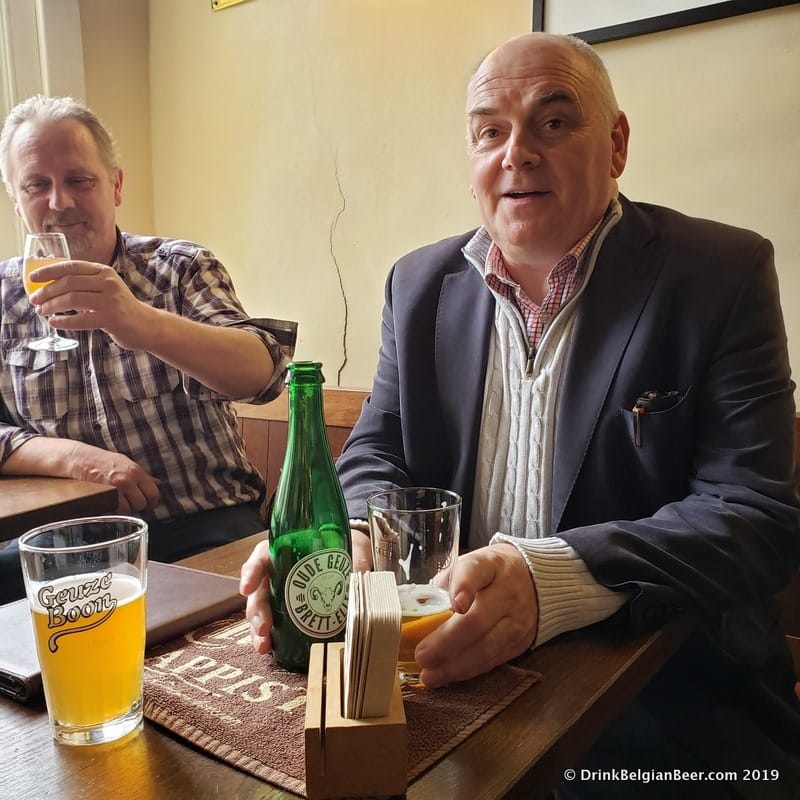
To sum up, Patrick Van der Spiegel organizes tours to lambic breweries, geuze blenderies, and traditional Belgian pubs in and near the Pajottenland and the Zenne Valley. Patrick guides these tours himself, and can do so in English, Dutch, and French. In addition, there is the possibility to pair these tours with guided tours at breweries or blenderies, with professional tour guides, or lambic brewers/blenders. These tours typically include tasting samples of multiple beers, and an optional lunch or dinner for the whole group.
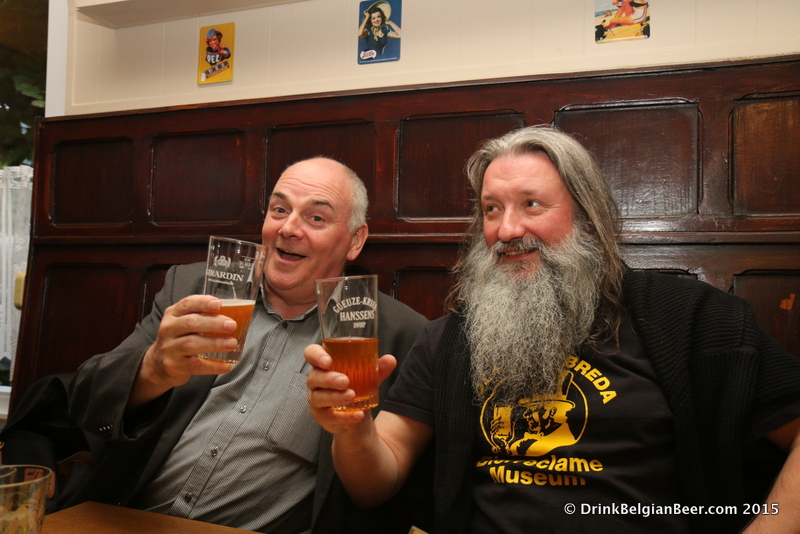
If you are interested in these custom guided tours, feel free to fill in the contact form on their website (lambictours.com) or send an email to patrick@lambictours.be. It is also possible to send private messages through their Instagram and Facebook pages.
Patrick’s lambic tours can be summed up in one word: Marvelous!

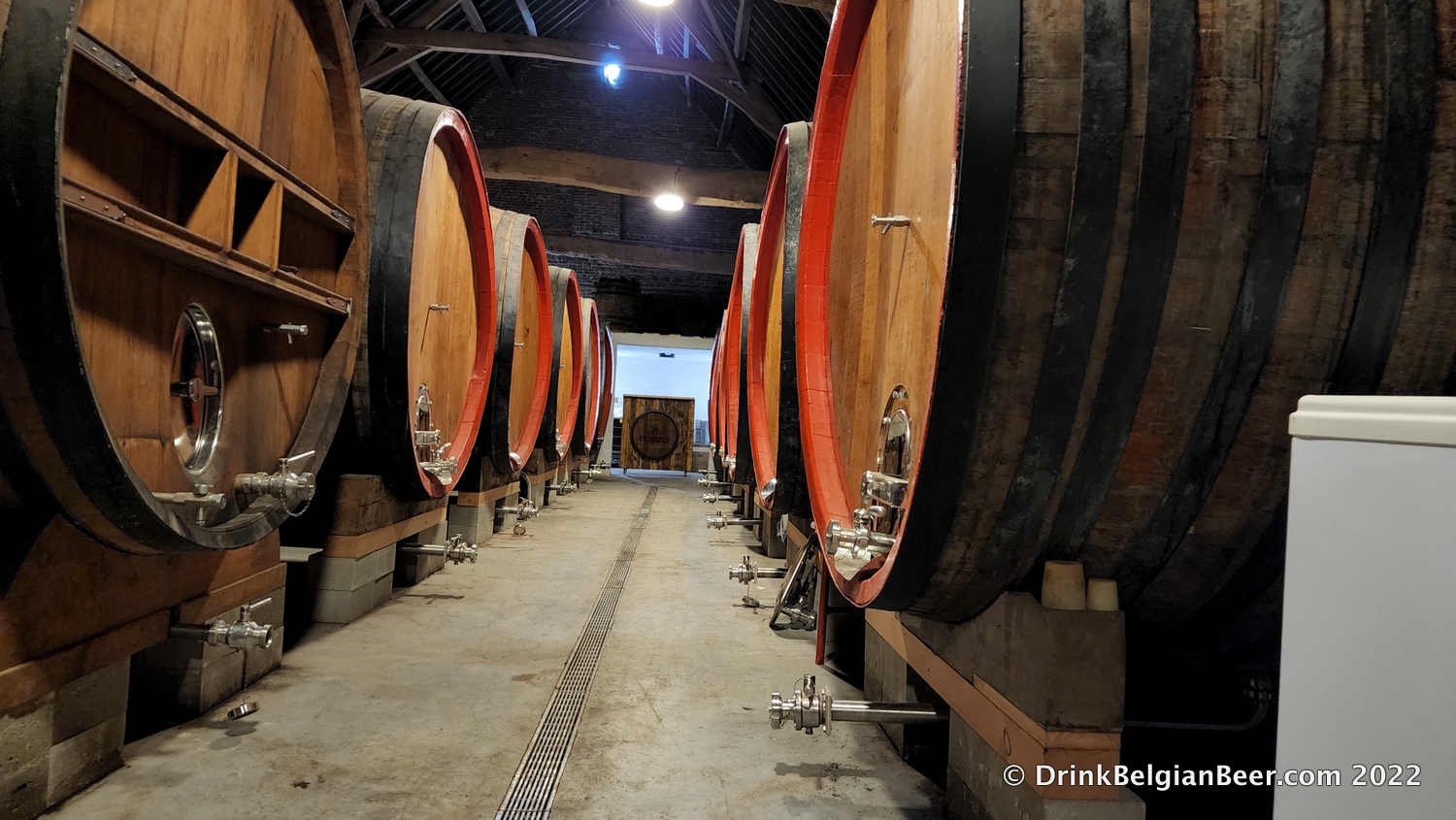
Leave a Reply